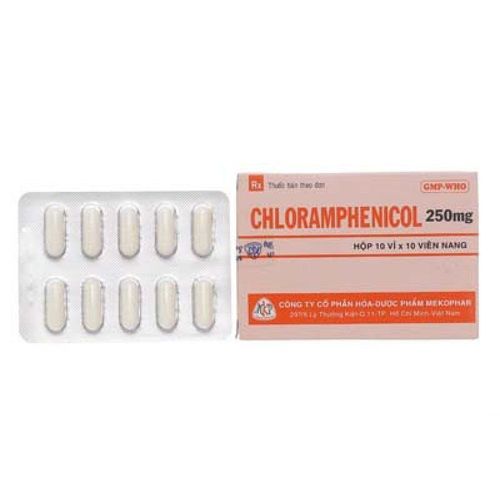This is an automatically translated article.
Pelvic inflammatory disease, despite being treated, still carries a risk of causing complications, the most serious being permanent infertility, especially in people with repeated infections. The risk of ectopic pregnancy is also greater because the sequelae leave scars in the fallopian tubes, making the implantation process difficult.
1. What is pelvic inflammatory disease?
Pelvic inflammatory disease is an inflammatory disease of the upper part of the female reproductive tract, which is the structures located in the pelvis, including the uterus, 2 ovaries and 2 fallopian tubes. Infection of the fallopian tubes is the most common sign of the disease.
The cause of pelvic inflammatory disease is mainly due to long-term consequences from sexually transmitted diseases, as well as vaginal dysbacteriosis, surgical intervention in the pelvic area or gynecological procedures another passes through the cervix. In addition, pelvic inflammatory disease arises because a woman's body has too strong a response to infection.
Pelvic inflammatory disease and its complications are a serious problem for women's reproductive health. The disease can cause sticky scarring to the uterus, fallopian tubes, and even the pelvic cavity. This is one of the main reasons for infertility and chronic pelvic pain. Pelvic inflammatory disease is often associated with bacterial infections, most commonly chlamydia and gonorrhea.
Symptoms of pelvic inflammatory disease are pain in the lower abdomen and pelvic region, menstrual disorders, pain during sex, painful urination, lower back pain, increased vaginal discharge, and odorous discharge. foul odor (discharge), fever, fatigue, diarrhea, vomiting, and other signs of systemic infection.

Triệu chứng của viêm tiểu khung là những cơn đau ở vùng bụng dưới và vùng tiểu khung
2. Pelvic inflammatory disease and complications
Complications of pelvic inflammatory disease pose a serious risk to a woman's ability to become pregnant. Pelvic inflammatory disease can leave sticky scars in the organs in the pelvis, thus potentially leading to infertility, ectopic pregnancy, and chronic pelvic pain.
According to statistical studies, even with treatment, the disease can still cause permanent infertility complications for about 12% of women. If a patient is infected a second time, there is a 25% chance of losing the ability to have children, even with treatment. If the pelvic inflammatory disease is repeated for the third time, more than half of the patients will never be able to get pregnant. Moreover, even if you can get pregnant, the risk of ectopic pregnancy is also very high because the fallopian tubes are scarred, making it difficult for the fertilized egg to move into the uterus for implantation, as a result, the egg is stuck in the fallopian tube and The zygote grew up here.
Specifically, the relationship between pelvic inflammatory disease and complications with infertility has been recognized through many studies. The disease causes infertility in women due to the scarring process that occurs during treatment for sexually transmitted diseases. Eventually, the scar healing process can block one or even both fallopian tubes.
Not only that, the complications of pyelonephritis also tend to be worse in older women, frequent smokers and women who wear IUDs (increased risk of infection and re-infection). Depending on how well the scarring of the fallopian tube is healing, it is possible for the sperm to reach the egg, and even if the sperm can get through to fertilize it, it will be difficult for the fertilized egg to move back. uterus for nesting. The number of female cases of infertility due to pelvic inflammatory disease is proportional to the number of recurrent infections, that is, the more times the pelvic inflammatory disease recurs, the higher the risk of infertility.
3. Prevention and treatment

Tiến hành tầm soát bệnh, đồng thời điều trị các bệnh lây truyền qua đường tình dục là một trong những biện pháp phòng bệnh cần thiết
Because it is one of the main causes of infertility, women need to pay special attention to disease prevention, especially to avoid re-infection. Preventing infertility caused by pelvic inflammatory disease will be much less expensive than treating infertility. Prevention is mainly education and guidance on safe sex practices, proper genital hygiene (not douching), use of protective condoms, screening for diseases, and treatment of other diseases. sexually transmitted infections, especially chlamydia.
Regarding treatment, it is necessary to use antibiotics according to the doctor's instructions. Currently, there are many antibiotics used in the treatment regimen for this disease. If medication does not resolve the disease, surgical intervention is required.
Patients with pelvic inflammatory disease can go to Vinmec International General Hospital for examination, diagnosis and treatment. There are full technical facilities as well as professional qualifications to perform infertility treatments, including pelvic inflammatory disease. The team of specialists in Obstetrics and Gynecology at Vinmec are well-trained and experienced, a system of complete and modern medical equipment and professional service quality will bring the highest treatment efficiency to patients. patient.
Please dial HOTLINE for more information or register for an appointment HERE. Download MyVinmec app to make appointments faster and to manage your bookings easily.













